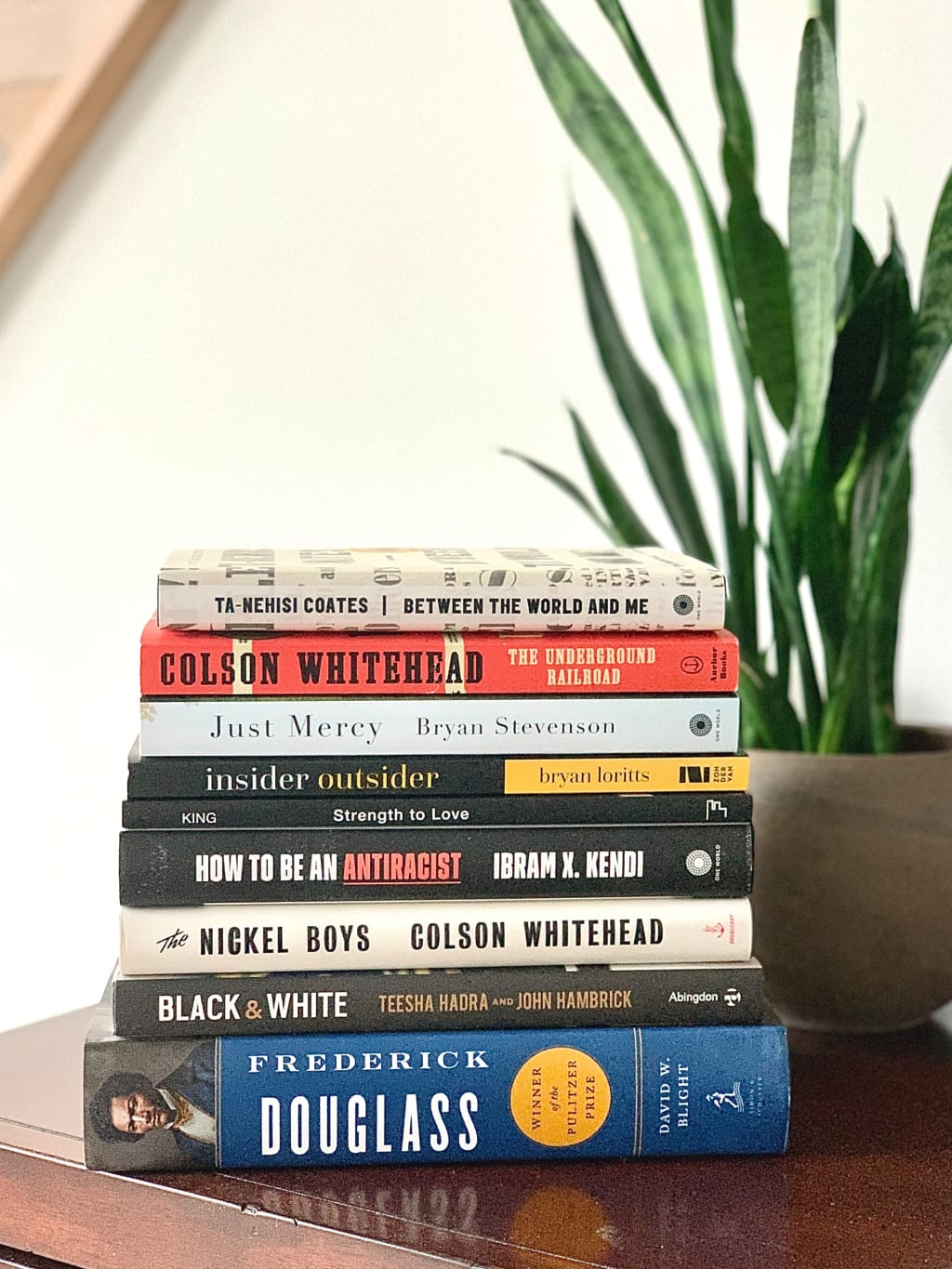Have You Decolonized Your Bookshelves Lately?
Make a conscious commitment to support Black and other diverse authors

February is Black History Month, which is a great time to think about who and what you read, and open yourself up to more diverse perspectives. Many of us do, but not often in a systematic manner. It’s easy to keep reading the same authors over and over, or only pick up writers who don’t fit our usual brief when their work makes a big splash in the public consciousness for some reason. Over the last year, with more focus on Black Lives Matter and the need for more diverse books by diverse authors, more books by Black authors have gotten the attention they deserve.
It used to be that works by Black authors were segregated into a particular section of the bookstore, and thus invisible to anyone who wasn’t actively looking for them. Sometimes they are set apart now, but with the motive of making them easier to find, not because they are considered “niche.” I am as guilty as anyone of not making a particular effort to read Black literature, except for certain celebrated authors. In fact, it wasn’t until about 10 years ago when I was working with a couple of Black colleagues and we started talking about and sharing books that I realized the extent of Black literature that was available. I simply hadn’t noticed, because it wasn’t in front of me, and hadn’t been marketed to me. And of course, the percentage of Black authors being published out of the whole, was tiny.
It’s still small, but slowly improving. And with so many new books entering the conversation in fiction and nonfiction, I felt it was time to think again about decolonizing my bookshelves.
As many people have considered how we can be more than just “not actively racist” but actively anti-racist, one area we can think about our reading material. It’s terrific that so many books addressing racism, white privilege, and social justice have been circulated and soared to the top of bestseller lists, among them Robin DiAngelo’s White Fragility, Ijeoma Oluo’s So You Want to Talk About Race, and Ibram X. Kendi’s How To Be An Antiracist. There have also been lists of children’s books that include some of my favorite authors, such as Jason Reynolds, Jacqueline Woodson, and so many others. Fortunately, more and more award lists include a range of authors from diverse perspectives, so good books are becoming easier to find.
What is decolonizing your bookshelves? And why do it?
It is looking at your bookshelves (and e-book library) and seeing just how many Black authors you have. Of course, you may have read books from the library as well, which won’t be on your shelves. But actually buying a book says something (if you have the means, of course): it signals what writers you support. In a time when publishing is reckoning with its lack of diversity on all levels, and after decades of Black authors receiving notably smaller advances based on the assumption that “Black people don’t read” or “no one reads books by Black authors” (to cite two comments made on a Twitter thread I followed a while ago), it’s important to think about why these ideas persist.
If you look at your shelves and are dismayed by the percentage of Black authors you see, don’t fall into the guilt trap. People buy books because those books speak to them in some way, and I’d venture to guess most #bookshelvessowhite people didn’t end up with shelves full of White authors on purpose. Take a closer look, too: how many authors from Latinx, Asian-American, or Native American communities? How many gay, lesbian, or trans authors? How many authors representing physically disabled or neurodiverse perspectives, or other types of diversity? How many international authors?
This isn’t an exercise in shaming, but in eye-opening to the possibilities out there. It’s an invitation to be more purposeful about choosing which books to read and how your world can be expanded by consciously choosing to read a selection of diverse authors (and at this point in U.S. history, Black authors in particular).
It doesn’t have to be all books explicitly on anti-racism, either. Black authors write science fiction and fantasy, commercial and literary fiction, mysteries, romances, YA, MG, picture books, poetry… any type of literature you can think of. Read widely enough, and it reminds us that Black writers (or people writing from any diverse perspective) are not a single monolithic entity, but individuals with different experiences and points of view. Fiction or nonfiction, they can tell us stories of lives we have never imagined, pushing us to think more deeply about our own lives and our own world.
So, you may be wondering, how did I do? Like many people, I’ve got some work to do in decolonizing my reading. I may have a slight head start from some because of my intercultural relations background, but again, it’s about being more purposeful going forward, actively seeking out diverse authors, to remind myself that my world is not The World, and that there is always more I can do to understand and learn from other perspectives.
Some of the books on my shelves, for those interested in checking them out:
Nonfiction:
Between the World and Me – Ta-Nehisi Coates
A Drop of Midnight – Jason Diakité
Bad Feminist – Roxane Gay
How to Be an Antiracist – Ibram X. Kendi
Becoming – Michelle Obama
So You Want to Talk About Race - Ijeomo Oluo
Writing the Other – Nisi Shawl
Why Are All the Black Kids Sitting Together in the Cafeteria? – Beverly Daniel Tatum
Caste: The Origins of Our Discontents – Isabel Wilkerson
Fiction:
Americanah – Chimamanda Ngozi Adichie
Kindred – Octavia Butler
Dhalgren – Samuel R. Delaney
The Inheritance Trilogy – N.K. Jemison
Beloved – Toni Morrison
Scarlet Odyssey – C.T. Rwizi
Every Body Looking – Candice Iloh
Long Way Down and All American Boys – Jason Reynolds
The Hate U Give – Angie Thomas
These are all pretty popular authors/titles, so I’m going to challenge myself this year to seek out new authors, or ones less well known. I already have a goal to read 52 books this year, and to include a minimum of one per month that represents diversity in some way (having a specific goal helps me stay on track and be conscious of staying open to a variety of perspectives). Since it’s Black History month, I expect there will be lots of focus on books by Black authors so I’ll have some to add to my to-be-read list. I’ve also been madly noting down all the books friends have been posting on Instagram!
Let’s hope the trend of publishing more diverse books continues, and that more and more authors gain exposure and acclaim. In order to subvert the narrative that “diverse books are too niche to sell” though, readers should consciously think about what books they consume, and what authors they support. Hopefully we’ll eventually have a world where we can retire the hashtag #weneeddiversebooks because diverse books will be a given. We won’t need to seek them out because they will be there right in front of us, and their authors fairly paid for their work.
About the Creator
Jana Van der Veer
Book and mindset coach for writers. Book lover, chocoholic. Go to www.setyourmuseonfire.com to grab your copy of 10 Questions to Ask to Get Unstuck at Any Stage of the Writing Process!






Comments
There are no comments for this story
Be the first to respond and start the conversation.